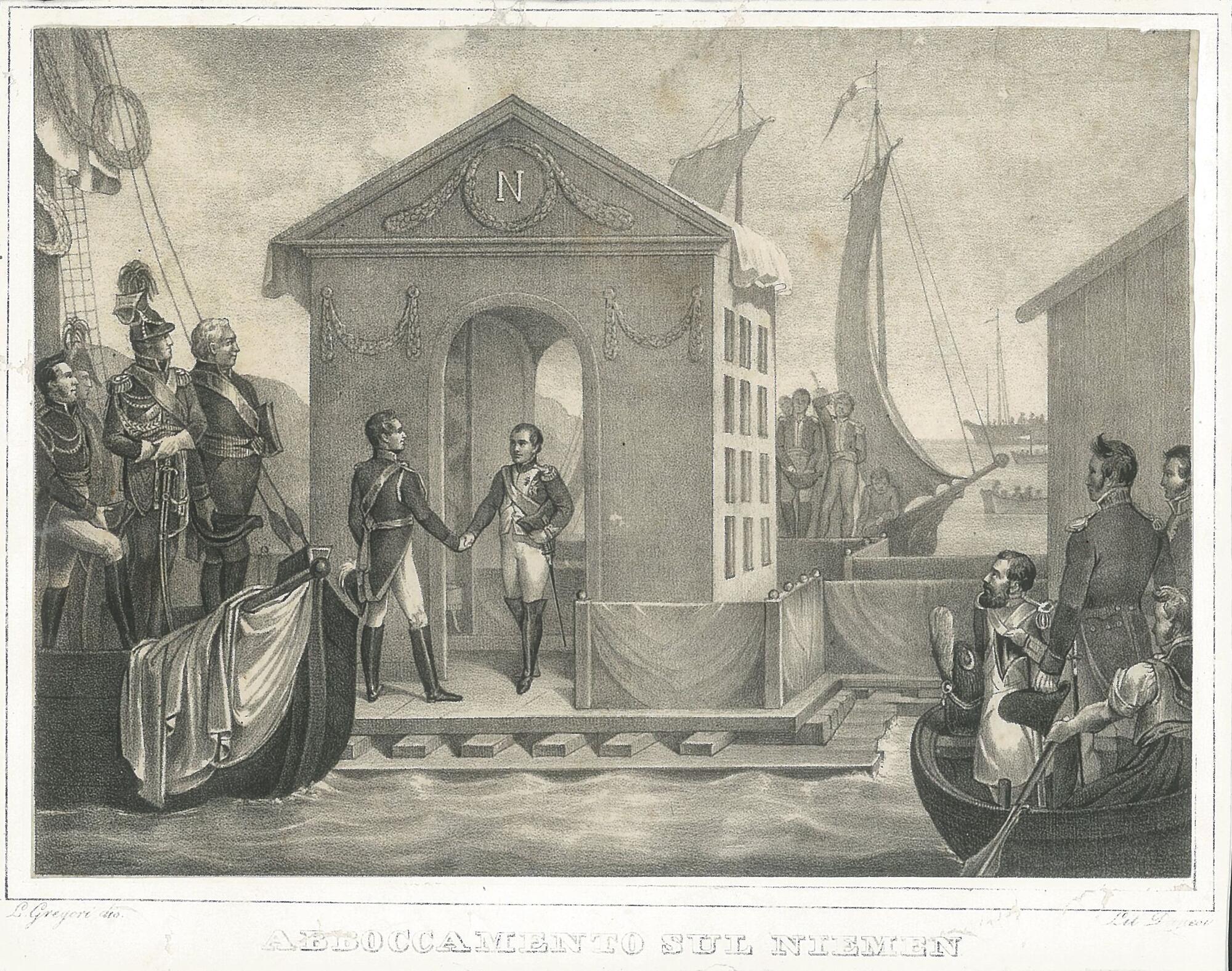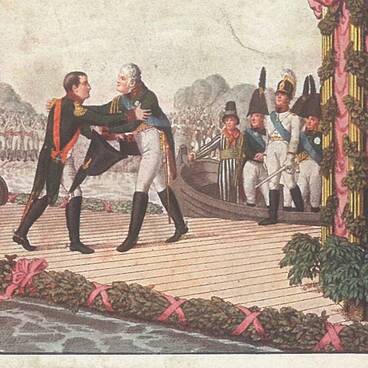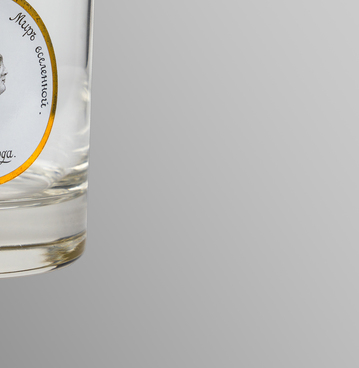For the emperors’ meeting, pavilions were built on wooden rafts anchored in the middle of the river. They were covered with sailcloths and richly decorated both outside and inside. Napoleon, accompanied by Duroc, Berthier, Bessier, Murat, and a brilliant retinue of 100 guardsmen on horseback, rode down Deutschstrasse to Castle Square, where a pleasure boat, all adorned and decorated with flags, was parked opposite the pavilions. On the opposite bank, the Russian Guard stood in parade formation. Alexander, accompanied by Grand Duke Constantine, General Bennigsen, Prince Bagration, and an equally brilliant retinue, arrived almost at the same time as Napoleon. He rode up to the river, where there was also a boat prepared for him. No sooner had the trumpets of the French cavalry sounded, than the Russian trumpeters answered them, both emperors simultaneously boarded the boats and reached the pavilions almost at the same moment. After a friendly embrace, they struck up a conversation that lasted nearly three quarters of an hour.
Before the meeting began, Napoleon asked Alexander, “Why are we at war with you, Sire?” The Russian emperor replied, “I hate the English as much as you do, and I will be your Majesty’s supporter in whatever you undertake against them.” “If so, the peace is made”, said Napoleon. The emperors parted with much evidence of outward friendliness and politeness, and returned in the same order as they had left. Throughout their meeting, the King of Prussia, who had not been invited to the raft, sat astride the horse on the bank of the Neman next to Prince Pyotr Volkonsky, and was silent most of the time. In the hour, when the fate of his monarchy was being decided, he kept his eyes and ears on the raft, as if he wanted to listen in on the conversations of both emperors. Once he drove off the bank into the river and stopped when the water was up to his horse’s belly. The next day, the Prussian king attended the meeting on the rafts at the insistence of the Russian Emperor Alexander. Denis Davydov recalled that the only difference between the two meetings “was that the King of Prussia took part in the latter, that some of Emperor’s entourage gave up their places on the boat for other people and that the Tsar and the King of Prussia were invited to live in Tilsit.”


